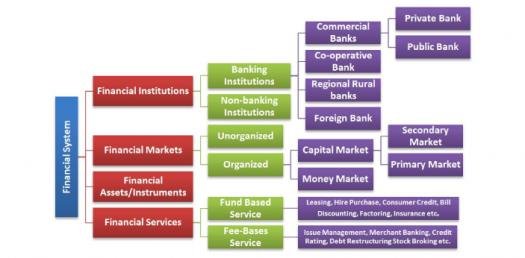
ECO. 324 Online Discussion/Quiz (Financial System, Intermediation, Foreign Exchange Market)—15-6-2023
1. A country’s financial system includes banks and nonbank lenders, insurers, securities markets, and investment funds. It also includes clearing counterparties, payment providers, central banks, and financial regulators and supervisors. These institutions provide a framework to conduct economic transactions and monetary policy and to channel savings into investment, thus supporting economic growth. When financial crises occur, they can have far-reaching effects. They can deepen economic downturns, trigger capital flight, and lower exchange rates. They can disrupt financial intermediation and undermine monetary policy. They can have large fiscal costs that come from rescuing troubled financial institutions. Because financial institutions and countries are increasingly connected, financial shocks in one area can quickly spill across financial sectors and national borders.That makes resilient, well-regulated, and well-supervised financial systems essential for economic and financial stability In view of the foregoing discourse, as the Special Adviser to Mr. President on Financial System Stability, clearly discuss what you understand by financial system, financial system stability and the components of Nigerian financial system.
Explain your answers in not less than 1000 words
2) YOU’VE got $1,000 but you don’t need for, say, a year and want to earn income from the money until then. Or you want to buy a house and need to borrow $100,000 and pay it back over 30 years.It would be difficult, if not impossible, for someone acting alone to find either a potential borrower who needs exactly $1,000 for a year or a lender who can spare $100,000 for 30. That’s where banks come in.
Although banks do many things, their primary role is to take in funds—called deposits—from those with money, pool them, and lend them to those who need funds. Banks are intermediaries between depositors (who lend money to the bank) and borrowers (to whom the bank lends money). The amount banks pay for deposits and the income they receive on their loans are both called interest. On the other hand, capital markets are financial markets that bring buyers and sellers together to trade stocks, bonds, currencies, and other financial assets. Capital markets include the stock market and the bond market. They help people with ideas become entrepreneurs and help small businesses grow into big companies. Against this background, as the incoming Governor of the Central Bank of Nigeria, you are required to present an address to the Governing Board of the CBN on the current state of money and capital markets in Nigeria and also distinguish between money and capital markets and their operations in Nigeria.
Explain your answers in not less than 1000 words






We are testing this comment form right now, all issues has been fixed. Thanks.